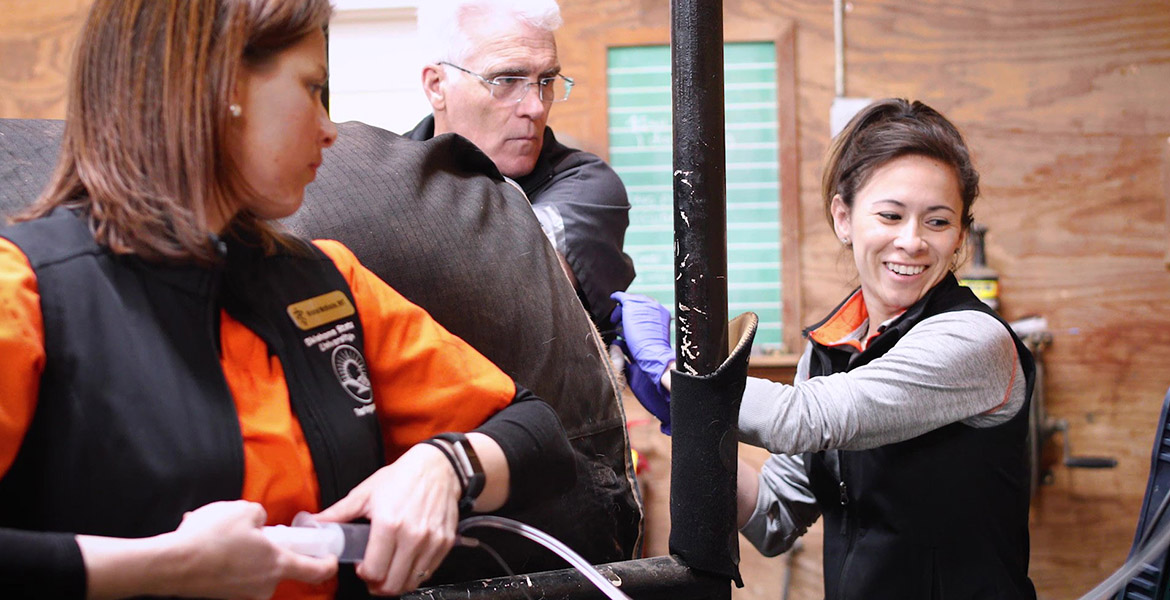
Older mares face reproductive challenges
Monday, September 16, 2019
A horse owner recently asked me: “I have a 17-year-old mare from whom we really wish to get a foal. She has proven herself over the years as a true athlete. We have tried now for two seasons without success with a stallion of proven fertility. My regular veterinarian told me that she may have poor fertility and be hard to get pregnant. Is that really the case?”
Actually, that may very well be the case. A mare’s reproductive tract undergoes changes with age. The older she is, the more likely she will have problems becoming pregnant. At 17, her eggs are starting to age and have an increased risk of chromosomal abnormalities. The lining of the uterus (endometrium) degenerates and becomes fibrotic over time. These degenerative changes occur mainly with aging and not necessarily with the wear and tear of pregnancy. In fact, regular pregnancies tend to reduce or suppress many degenerative processes.
Another problem that occurs with older maiden mares is that they lose the ability to clear the uterus of fluid (secretions) that is a normal part of the reproductive cycle. Normally as a mare cycles, the cervix (a barrier that protects the uterus from outside contaminants) softens and allows normal uterine contractions to push out accumulating fluid. In older maiden mares, the cervix fails to relax and fluid builds up inside the uterus. This fluid is toxic to both sperm and an embryo, if one develops after breeding.
Also in older mares, the cells lining the uterus become less functional and are less likely to allow the placenta to develop fully or to support a growing fetus in mid- to late pregnancy. Also, older mares’ external reproductive tract conformation may become tipped forward over time, especially in taller and thinner mares. This is more often associated with multiple foalings, but it may happen with age. Either way, this condition increases the risk of reproductive tract contamination and infections.
With all of these factors going against an older maiden mare, one might wonder if it is worth the effort in trying to get them pregnant. Still, not all mares age the same way, and many of these conditions can be diagnosed and treated.
For years, veterinarians at Oklahoma State University’s Center for Veterinary Health Sciences specializing in equine reproduction have developed a clinic specifically dedicated to the older barren mare. From basic breeding management, to delicate laser surgery, to embryo transfer, and more recently, the ability to aspirate the mare’s eggs from her ovaries for in-vitro fertilization (see more at okla.st/miracles). We can offer hope to the career mare, who may be in line to pass on her genetics to the next generation.
STORY BY: G. Reed Holyoak, DVM, Ph.D., DACT. Holyoak is a professor and holds the Bullock Equine Reproduction Endowed Professorship at the Oklahoma State University Center for Veterinary Health Sciences. He is a board-certified diplomate of the American College of Theriogenology.
